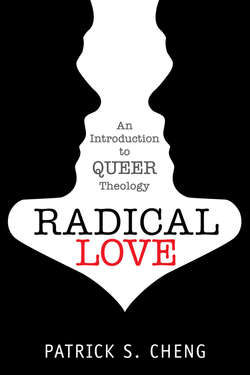Читать книгу Radical Love - Patrick S. Cheng - Страница 19
На сайте Литреса книга снята с продажи.
Queer Reason
ОглавлениеQueer theology also draws upon reason—that is, our ability as human beings to observe the world and use philosophy to know God. Traditionally speaking, this source of theology assumes that God can be known by observing nature and the created order. For example, Thomas Aquinas’ famous five proofs for God are derived from the principles of reason.
Traditionally speaking, reason has not been seen as a queer-friendly source of theology. This is due in large part to the Roman Catholic view that nonprocreative sexual acts (including same-sex acts) are always intrinsically evil as a matter of natural law. However, the Roman Catholic theologian Gareth Moore challenged this traditional view in his book A Question of Truth: Christianity and Homosexuality. According to Moore, the magisterium of the Roman Catholic Church must ask itself whether what it teaches is actually true. Is it really true that all same-sex acts and relationships are intrinsically evil? Is it true that all LGBT people are unhappy and poorly adjusted? Is it true that same-sex acts and relationships do not occur naturally in the created order?37
The truth is that, contrary to the teachings of the Roman Catholic Church, there are hundreds of animal and bird species in the natural world that engage in same-sex acts or gender-variant behavior.38 Furthermore, there have been numerous Roman Catholic bishops, priests, members of religious orders, and laypersons who have come out of the closet and written about their experiences as LGBT people.39
After reviewing the scientific evidence, Moore concludes in his book that the “only rational course at the moment” is to “continue to believe in the possible goodness of homosexual relationships.” For Moore, this is not a question of dissent, but rather the fact that the Roman Catholic Church currently lacks any sound arguments upon which its condemnation of same-sex acts can be based. That is, “the church teaches badly.”40
In addition to challenging the traditional natural law arguments about the intrinsically evil nature of same-sex acts,41 queer theologians have increasingly drawn upon reason in the form of poststructuralist philosophy—that is, queer theory— in constructing their queer theology. Queer theory rejects the traditional view that categories of sexuality (that is, homosexual vs. heterosexual) and gender identity (that is, female vs. male) are “natural,” essentialist, or fixed. Instead, as articulated in the work of theorists such as Judith Butler and Michel Foucault, queer theory argues that the meanings of such categories are socially constructed.
This is not to deny that there are in fact physiological differences between people in terms of sexual attraction and bodies. These differences do exist. Furthermore, this is not to deny that sexuality and gender identity can effectively be immutable characteristics for many people and thus are deserving of legal protections akin to race. However, the significance of such differences in terms of sexuality and gender identity is not simply a matter of “nature,” but rather is socially constructed. As noted above, even though people may differ in terms of, say, hat size, that particular physical marker of difference has little to no relevance in everyday life. Similarly, there is no reason why a person’s genitalia must automatically determine everything from hair and clothing styles to preferred color (for example, pink vs. blue) to family role to career choices. It is important to understand that the spectrum of behaviors normally associated with an individual’s birth-assigned sex are actually a matter of a social convention that is constantly changing.
Queer theologians have used queer theory to challenge not only the fluidity of sexual and gender boundaries,42 but also the boundaries relating to Christian theology itself. These boundaries include the divine vs. human, soul vs. body, life vs. death, heaven vs. earth, center vs. margins, and numerous other boundaries that are dissolved or erased by radical love as we approach the eschatological horizon. Indeed, Christian theology is, as I have suggested, fundamentally a queer enterprise.
Finally, queer theologians—and especially queer theologians of color—are drawing upon other forms of reason and philosophy, such as a postcolonial theory, in their “talk about God.” The language of postcolonial theory is especially effective in terms of dealing with issues of hybridity and intersectionality (that is, the multiple social locations of sexuality, gender identity, sex, race, and other identities) and the power dynamics between and within various identity groups.43
